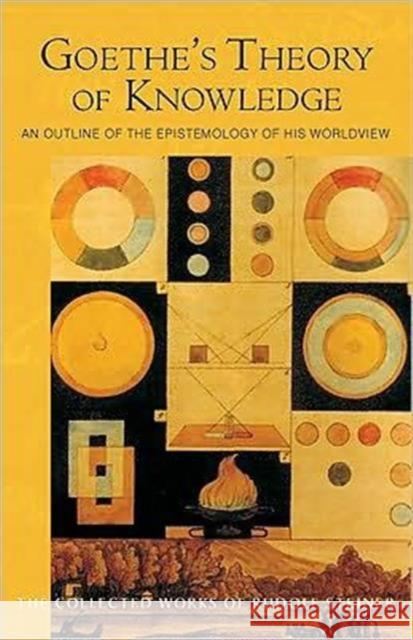Goethe's Theory of Knowledge: An Outline of the Epistemology of His Worldview » książka
Goethe's Theory of Knowledge: An Outline of the Epistemology of His Worldview
ISBN-13: 9780880106238 / Angielski / Miękka / 2008 / 151 str.
Written 1884-1885; first published 1886 (CW 2)
As the editor of Goethe's scientific writings during the 1880s, Rudolf Steiner became immersed in a worldview that paralleled and amplified his own views in relation to epistemology, the interface between science and philosophy, the theory of how we know the world and ourselves. At the time, like much of the thinking today and the foundation of modern natural science, the predominant theories held that individual knowledge is limited to thinking that reflects objective, sensory perception. Steiner's view was eventually distilled in his Anthroposophical Leading Thoughts in 1924:
There are those who believe that, with the limits of knowledge derived from sensory perception, the limits of all insight are given. Yet if they would carefully observe how they become conscious of these limits, they would find in the very consciousness of the limits the faculties to transcend them.
In this concise volume, Steiner lays out his argument for this view and, moreover, begins his explication of how one goes beyond thinking to the observation of thinking itself.
CONTENTS:
- Introduction by Christopher Bamford
- Preface to the Edition of 1924 by Rudolf Steiner
- Foreword to the First Edition (1886) by Rudolf Steiner
- A. Preliminary Questions
- 1. The Point of Departure
- 2. Goethe's Science According to Schiller's Method
- 3. The Purpose of Our Science
- B. Experience
- 4. Establishing the Concept of Experience
- 5. Examining the Essence of Experience
- 6. Correcting the Erroneous View of Experience as a Totality
- 7. The Experience of Each Individual Reader
- C. Thinking
- 8. Thinking as a Higher Experience within Experience
- 9. Thinking and Consciousness
- 10. The Inner Nature of Thinking
- D. Knowledge
- 11. Thought and Perception
- 12. Intellect and Reason
- 13. The Act of Cognition
- 14. Cognition and the Ultimate Ground of Things
- E. Knowing Nature
- 15. Inorganic Nature
- 16. Organic Nature
- F. The Humanities
- 17. Introduction: Mind and Nature
- 18. Psychological Cognition
- 19. Human Freedom
- 20. Optimism and Pessimism
- G. Conclusion
- 21. Knowledge and Artistic Creation
- Notes to the First Edition 1886]
- Annotations to the Edition of 1924
A Theory of Knowledge is a translation from the German of Grundlinien einer Erkenntnistheorie der Goetheschen Weltanschauung, mit besonderer Rucksicht auf Schiller (GA 2). Previous translations were published as The Science of Knowing (1988) and The Theory of Knowledge implicit in Goethe's World-Conception: Fundamental Outlines with Special Reference to Schiller (1940).











